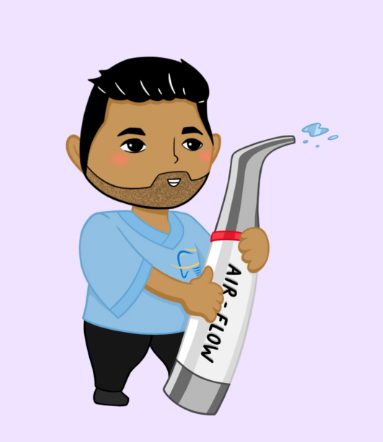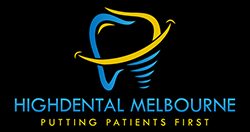High Dental > Dental Care & Treatments > Oral Hygiene
Not only is your oral hygiene extremely important in maintaining the health of your teeth and gums, it also affects your overall health and wellbeing. Your mouth acts as the gateway to the rest of your body – it is the start of the digestive tract and it can also communicate with your bloodstream. Here is why good oral hygiene is essential for optimal health and what you can do to improve your oral hygiene routine.
Dental Spa Therapy Promotion
$300
Includes full check-up, AirFlow clean, x-rays and fluoride treatment
*Terms and conditions: Offer only applies to new patients for the first visit only
Oral Hygiene Can Affect Your Overall Health
A common misconception is that oral hygiene only affects the teeth and gums. However, numerous studies have proven that there is a robust relationship between oral health and general health. The World Oral Health Report (2003) states that poor oral health is associated with major chronic diseases such as cardiovascular disease, diabetes, respiratory diseases, stroke, kidney diseases, and even dementia.
Oral health also has a significant impact on our mental and social health. This is because oral diseases influence all the basic processes that we require to function in our everyday lives – it affects the way we eat, sleep, speak, and rest; and the way we interact with our family, friends, and colleagues. This can cause substantial pain and suffering, as well as loss of productivity due to time taken off work or school.
Brushing Removes Bacterial Plaque
Our mouths are full of bacteria. These bacteria stick to the surfaces of our teeth in the form of a slimy film called “plaque”. The longer plaque stays on our teeth, the more harmful they become. Bacteria love to feed on sugar and secrete acid as part of their metabolism. The acid they produce attacks our teeth and is responsible for tooth decay. To prevent this from happening, an oral hygiene routine that involves regular brushing and interdental cleaning is essential.
Plaque can also harden into a stone-like substance called “calculus”. It is impossible to remove calculus with a regular toothbrush. When this occurs, only professional cleaning by a dental practitioner can remove these stubborn deposits off your teeth.
Brushing and Interdental Cleaning Can Help Prevent Gum Disease
The harmful bacteria in plaque cause inflammation of the gums, making our gums become red and swollen. They also make our gums bleed easily. If you notice bleeding when you brush or floss, this may be a sign that your gums are inflamed.
Gum inflammation can be resolved with improved oral hygiene habits and professional cleaning. However, when left unattended, gum inflammation can spread to the underlying bone that holds our teeth in place, leading to a condition called “periodontitis”, also known as gum disease.
The bones that support our teeth are like the soil supporting a tree. In gum disease, our bones start to break down leading to shrinking gums and loose teeth. In advanced stages of gum disease, teeth may be lost due to extensively broken down bones.
To minimise your risk of developing gum disease, performing good oral hygiene everyday is absolutely essential. This not only involves brushing, but also cleaning in between the teeth with either floss or little interdental brushes. If you are unsure of how to improve your at-home oral hygiene routine, come speak to one of our dental practitioners.
Attend Regular Dental Check-Ups and Cleans
Regular dental check-ups facilitate the early detection of oral diseases, such as:
- Oral cancer
- Tooth decay
- Gum disease
- Infection
- Cracked teeth
- Impacted wisdom teeth
Early detection and prompt management of oral diseases prevent the need for complex procedures. Professional cleaning is recommended every 6 months for optimal oral health.

